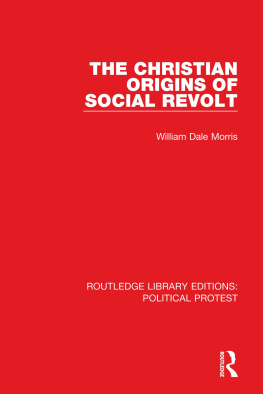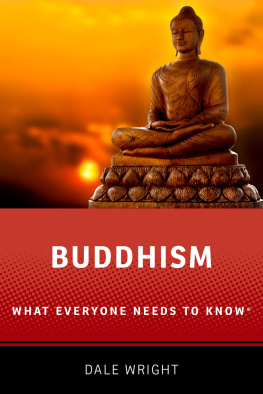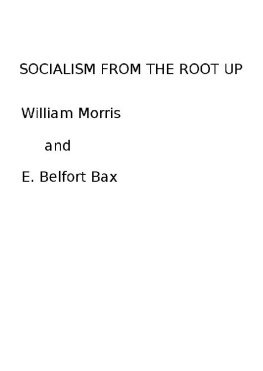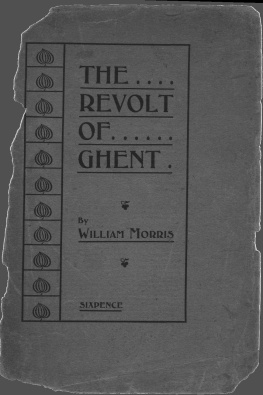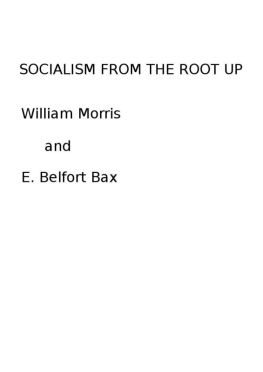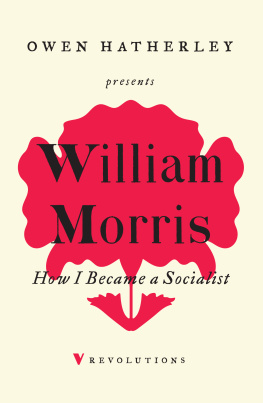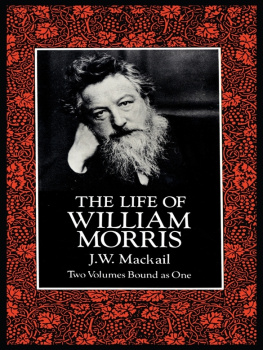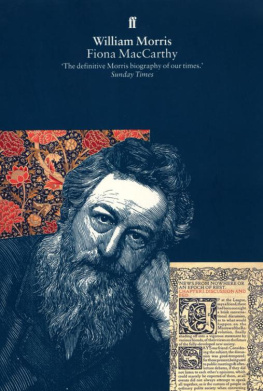First published in 1949 by George Allen & Unwin Ltd
This edition first published in 2022
by Routledge
2 Park Square, Milton Park, Abingdon, Oxon OX14 4RN
and by Routledge
605 Third Avenue, New York, NY 10158
Routledge is an imprint of the Taylor & Francis Group, an informa business
1949 George Allen & Unwin Ltd
All rights reserved. No part of this book may be reprinted or reproduced or utilised in any form or by any electronic, mechanical, or other means, now known or hereafter invented, including photocopying and recording, or in any information storage or retrieval system, without permission in writing from the publishers.
Trademark notice: Product or corporate names may be trademarks or registered trademarks, and are used only for identification and explanation without intent to infringe.
British Library Cataloguing in Publication Data
A catalogue record for this book is available from the British Library
ISBN: 978-1-03-203038-8 (Set)
ISBN: 978-1-00-319086-8 (Set) (ebk)
ISBN: 978-1-03-203643-4 (Volume 2) (hbk)
ISBN: 978-1-03-203644-1 (Volume 2) (pbk)
ISBN: 978-1-00-318832-2 (Volume 2) (ebk)
DOI: 10.4324/9781003188322
Publishers Note
The publisher has gone to great lengths to ensure the quality of this reprint but points out that some imperfections in the original copies may be apparent.
Disclaimer
The publisher has made every effort to trace copyright holders and would welcome correspondence from those they have been unable to trace.
FIRST PUBLISHED 1949
This book is copyright.
No portion of it may be reproduced by
any process without written permission.
Enquiries should be addressed to the
publishers.
PRINTED IN GREAT BRITAIN
in 11 point Baskerville Type
BY WILLMER BROS. & GO. LTD., BIRKENHBAD
I am indebted to George Allen & Unwin Ltd. and to the following authors for permission to quote from their books:
Social Struggles in the Middle Ages. M. Beer.
History of British Socialism. M. Beer.
Early British Economics. M. Beer.
A Short History of English Rural Life. Montague Fordham, M.A.
Cromwell and Communism. E. Bernstein.
English Radicalism, 1832-1852. S. Maccoby , Ph.D.
A History of the Fabian Society. E. R. Pease.
Reflections on the Revolution of Our Time. Harold Laski.
My grateful thanks are also due to the following authors and publishers for permission to quote from their books:
The Town Labourer, 1760-1832. J. L. & B. Hammond. Longmans Green & Co., Ltd.
A Century of Co-operation, G. D. H. Cole . Co-operative Union.
British Working Class Politics, 1832-1914. G. D. H. Cole. Geo. Routledge & Sons, Ltd.
The Common People, 1746-1938. G. D. H. Cole & R. Postgate . Methuen & Co., Ltd.
Religion and the Rise of Capitalism. R. H. Tawney . John Murray.
The Chartist Movement. Mark Hovell , M.A. Manchester University Press.
The Medieval Village. G. G. Coulton . Cambridge University Press.
The Cambridge Modern History. Cambridge University Press.
The History of Trade Unionism. Sidney & Beatrice Webb,
Christian Socialism, 1848-1854. Charles E. Raven , M.A. Macmillan & Co., Ltd.
Keir Hardie. William Stewart . Independent Labour Party.
An Outline of Mans History. P. Gordon Walker . National Council of Labour Colleges.
Workers History of the Great Strike. Postgate, Wilkinson & Horrabin , National Council of Labour Colleges.
The Communist International. Franz Borkenau.
The Builders History. Raymond Postgate . National Federation of Building Trades Operatives.
The16thand17thCenturies. P. Gordon Walker , B. Litt., M.A. Victor Gollancz, Ltd.
left-Wing Democracy in the English Civil War. David W. Petegorsky . Victor Gollancz, Ltd.
Guilds in the Middle Ages. Georges Renard . G. Bell & Sons, Ltd.
William Dale Morris.
He hath put down the mighty from their scats, and exalted them of low degree. He hath filled the hungry with good things; and the rich he hath sent empty away.
Luke. I ,
52 and 53.
The Cenobites
Like all mass movements Christianity had many sources, and many currents flowed to make it a
Until the middle of the second century the constitution of the Christian communities was democratic and equalitarian. The whole of the members, in so far as they possessed the necessary qualifications, were eligible for the priestly office. They were called Elders (Presbyteroi, whence priests), and the most prominent members of the Elders were called Overseers (Episkopoi, whence bishop). Moreover, no distinction was made between clergy and laity; and it was only with the numerical growth of the Church, and the elaboration of the simple Christian teachings into a theological system that the clergy became a special class invested with ever greater powers as the Church won a position of importance and influence in the state. Then
the primitive Christian presbyters transformed themselves into a sacred oligarchy with privileges and special attributes: the small and persecuted community of poor fishermen and handworkers, practising piety and renunciation, became a powerful and affluent State Church. (Social Struggles in the Middle Ages, M. Beer, pp. 70-71.)
The theory of Socialism ... grew out of the philosophic, historical and economic theories that were elaborated by the educated representatives of the propertied classes, the intellectuals. The founders of modern scientific Socialism, Marx and Engels, themselves belonged to the bourgeois intelligentsia.
What is to be Done, Lenin.
Christianity (like modern Socialism) became more and more popular and respectable, and by the third century Christians were to be found in every walk of lifein the army and in government positions, at court, and among scholars, students and business men. For a time intermittent persecutions tended to purge the Church of insincere elements,

